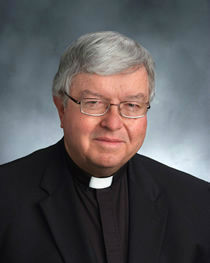
Faith
The teaching of Mary's perpetual virginity is one of the longest defined dogmas of the Church.

Doyle
Q. When I was an evangelical, the standard take on Mary's virginity was that she remained a virgin until after the birth of Jesus, but afterward went on to have normal marital relations with Joseph, which produced up to six more children.
These ideas were based on passages like Matthew 1:25 ("He had no relations with her until she bore a son, and he named him Jesus") and Matthew 13:55 ("Is not his mother named Mary and his brothers James, Joseph, Simon, and Judas? Are not his sisters all with us?").
Now, as a Catholic, I am told that Joseph was significantly older than Mary, was a widower with adult children from his first marriage and that Jesus' "brothers and sisters" were more like stepbrothers and stepsisters.
Could not Mary still have attained "Queen of Heaven and Earth" status without being a perpetual virgin? (Indiana)
A. As to your specific question, whether Mary could be thought of as queen of heaven and earth without having been a perpetual virgin, the answer of course is yes. But that is not the issue here.
The teaching of Mary's perpetual virginity is one of the longest defined dogmas of the Church. It was taught by the earliest church fathers, including Tertullian, St. Athanasius, St. Ambrose and St. Augustine, and it was officially declared a dogma at the fifth ecumenical council at Constantinople in 553.
As to the scriptural passages to which you refer, I would make two points. First, the footnote in the New American Bible explains Matthew 1:25: "The Greek word translated 'until' does not imply normal marital conduct after Jesus' birth, nor does it exclude it."
As to your other scriptural reference, the words here in their original language do not mean simply biological brothers or sisters but could apply to other relatives such as stepbrothers or stepsisters or cousins.
Q. While I know that only confession will reconcile me with God, I am confused about the terminology used in my parish. (We are a rural parish and have very few opportunities for confession, but there is always the chance to make a private appointment for confession.)
Any scheduled confessions are now announced as reconciliation, and I am not clear as to what to expect when I go. Sometimes there is a reconciliation service followed by confessions; other times, there are only confessions.
Does the church no longer recognize a difference between the reconciliation service (which was to prepare us for confession) and the Sacrament of Confession (which is private). In other words, is there still a sacrament of confession or is it now called the sacrament of reconciliation? (Courtland, Virginia)
A. Generally, the sacrament of penance can be called confession or reconciliation, and the three terms are used interchangeably. In fact, the Catechism of the Catholic Church (Nos. 1423-24) lists several names by which the same sacrament can be designated.
These include: the sacrament of conversion, the sacrament of penance, the sacrament of confession, the sacrament of forgiveness, and the sacrament of reconciliation.
The catechism notes that "the disclosure or confession of sins to a priest is an essential element of this sacrament" (No. 1424).
Sometimes parishes offer reconciliation services that include prayers and scriptural readings on forgiveness, as well as a homily on the same topic. It would be good for a local church to mention in advance what the format will be for the sacrament -- in particular so that parishioners can know how much time to allow.
- Father Kenneth Doyle is a columnist for Catholic News Service
Recent articles in the Faith & Family section
-
The Eucharistic Prayers -- variety and similarityFather Robert M. O'Grady
-
A Most Unusual Mission MosaicMaureen Crowley Heil
-
A new windScott Hahn
-
Scripture Reflection for May 19, 2024, Pentecost SundayJem Sullivan
-
Can I go to a Methodist church since there are no Catholic churches nearby?Jenna Marie Cooper


















